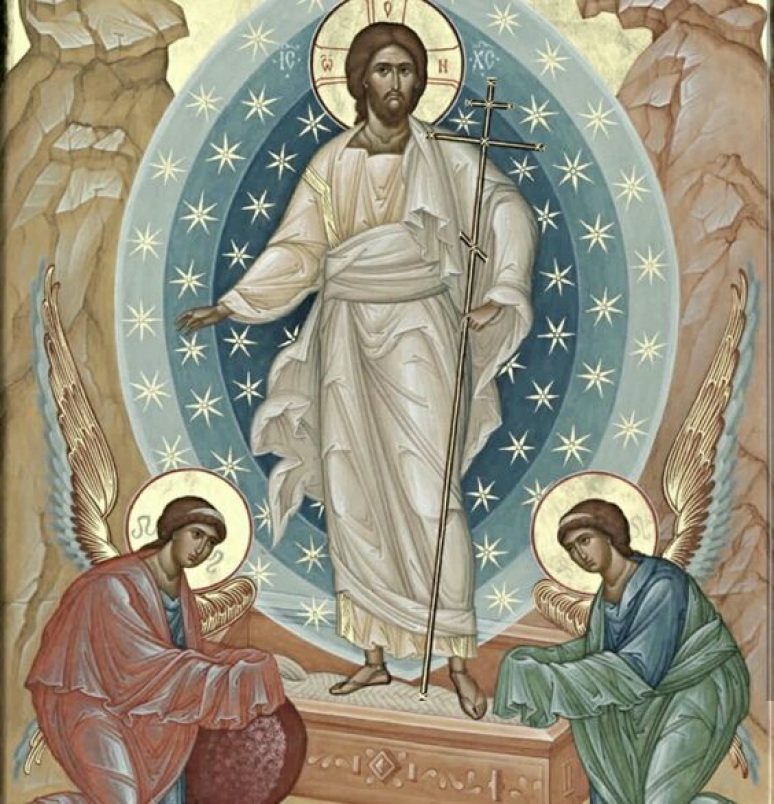Someone will ask: how do you say that the risen Lord overcame death, but people are still dying? Whoever enters this life through the mother’s womb, they come out of this life through death and the grave. Only that death for us, who die in Christ, is no longer a dark abyss, but a birth into a new life and a return to our homeland. For all those who are filled with love for the beautiful and humane God, the grave has become only the last obstacle to enter His presence. That is why the glorious apostle Paul exclaims: to me life is Christ and death is gain (Philippians 1:21).
Frostbites gather around the fire; the hungry gather around the table; tormented in the long-night darkness rejoice at the rising of the sun; exhausted by too much struggle, they shout sudden victory. Oh, risen Lord, how by Your resurrection You became everything to everyone! O most rich King, how with Your one gift You filled all the empty hands extended to heaven! The sky rejoices, the earth rejoices. Heaven rejoices as a mother rejoices when she feeds her hungry children; the earth rejoices as children rejoice when they receive food from their mother’s hands.
The victory of Christ is the only victory that all human beings can rejoice in, from the first creation to the last. Every other victory on earth has divided and divides people. When one king of the earth wins over another king, one of them rejoices and the other mourns. When one man defeats his neighbor, then there is song under one roof and crying under the other. But there is no victorious joy on earth, which is not poisoned by malice: the ordinary conqueror rejoices on earth as much as with his laughter as much as with the tears of a defeated opponent. He himself does not notice how malice halves his joy.
When Tamerlane defeated Sultan Bayezid, he put him in an iron cage and made a feast and merriment in front of the cage. His malice was all his joy; his malice fed his joy. Oh, brethren, how short-lived joy is! Oh, how evil poisonous food is joy! When King Stevan of Decani defeated the King of Bulgaria, he did not want to enter the Bulgarian land or enslave the Bulgarian people, but went to the hermitage from the battlefield to fast and pray to God. This winner is nobler than that. But this victory, like no human victory, is not a victory without its grief for the vanquished. Even the noblest human victory is similar to a sun, which would shed light on one half and dark rays on the other. Only the victory of Christ is like the sun, which sheds bright rays on all those who stand under it. Only the victory of Christ fills all human hearts with undivided joy. Only that victory is without malice.
A generous victory you will say? Yes, and more than that. Isn’t the mother more than generous when she not only defends her children from snakes once or twice, but in order to save the children forever, she goes bravely to the snake’s nest and burns it with fire?
Healing victory, you say? Yes, healing and saving forever and ever. This innocent victory saves people from all evils and makes them immortal – and makes them immortal and sinless. Because immortality without sinlessness would only mean an extended life of evil, an extended life of malice. And immortality with sinlessness gives birth to undiminished joy and makes people brothers of the most radiant angels of God.
Who does not rejoice in the victory of Christ the Lord? Behold, He did not win for Himself, but for us. His victory did not make Him bigger, more alive, richer than us. His victory is not selfishness but love, not kidnapping but a gift. Earthly victors bring victory, and Christ is the only one who brings victory. No earthly conqueror, emperor or duke, wants his victory to be separated from him and attributed to another; only the risen Lord offers His victory to each of us, and he is not angry, but he rejoices when we become winners with His victory, that is, bigger, more alive and richer than we are.
Earthly victories are more beautiful when viewed from afar, and uglier and more disgusting when viewed closely, while the victory of Christ cannot be said to be more beautiful: whether viewed from afar or up close. Seeing this victory from afar, we admire it as unique in splendor, beauty, purity and salvation. Looking at it up close, we admire it because of the horror of the enemies, who were crushed by it, as well as because of the multitude of slaves, who were freed by it. Today is more than any other day of the year dedicated to the celebration of this victory of Christ, and it is appropriate to look at this victory up close because of better knowledge and greater joy.
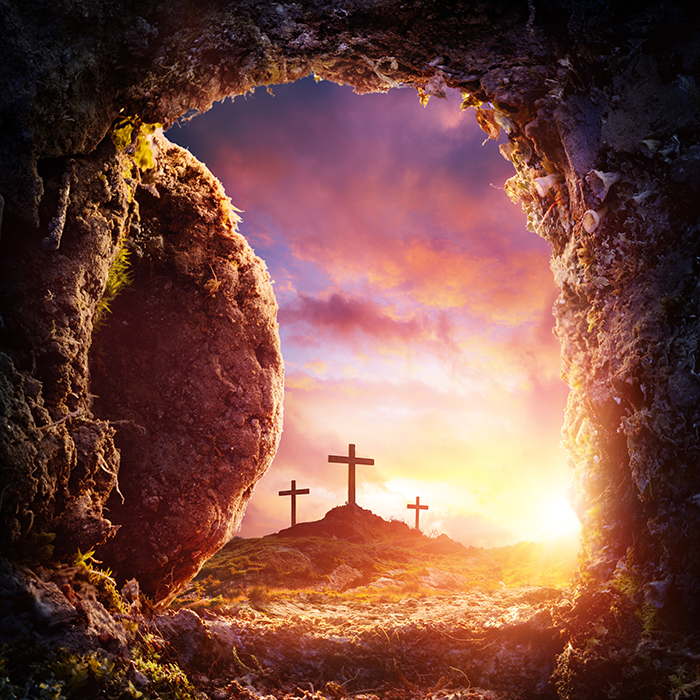
Let us, therefore, come closer to our resurrected and victorious Lord and ask ourselves: first, whom did He overcome by His resurrection? and second, whom did He deliver by His victory?
By His Resurrection, the Lord defeated the two worst enemies of human life and human dignity: death and sin. These two enemies of the human race were born when the first man became detached from God by trampling on the commandment of obedience to his Creator. In Paradise, man knew neither death nor sin, nor fear nor shame. Because attached to the Living God, man could not know about death, and living in perfect obedience to God, he could not know about sin. And where death is not known, fear is not known; and where sin is not known, the shame of sin is not known. As soon as man sinned against all-saving obedience to God, fear and shame entered him; he felt infinitely distant from God and sensed the hair of death above him. So when God called Adam and said to him: where are you? he said: I heard your voice in the garden, so I was afraid, because I was naked, and I hid (Gen. 3: 7-10). Until then, the voice of God strengthened, rejoiced and revived Adam, and then, after the sin was committed, that same voice of God weakened and frightened him. Until then, Adam saw himself dressed in the angelic garment of immortality, and then he saw himself stripped of sin, robbed, humiliated to the core, and reduced to a dwarf. Thus, brethren, the slightest sin of disobedience to God is horrible. Fearing God, Adam hid among the trees in the garden. Like when a tame cat goes wild and runs away to the mountain, and starts hiding from its host and breadwinner! From the senseless creatures, over whom Adam had ruled omnipotently until then, he began to seek protection beyond his Protector. One sin with a lightning speed pulled the second, the third, the hundredth, the thousandth, until the man finally jumped and grounded, body and spirit. The sinful path that Adam struck led to the earth and into the earth. Hence God’s words: for you are earth and you will go to earth (Gen. 3:19) express not only God’s judgment but also one already started and rapidly advancing process of grounding and disintegration of man.
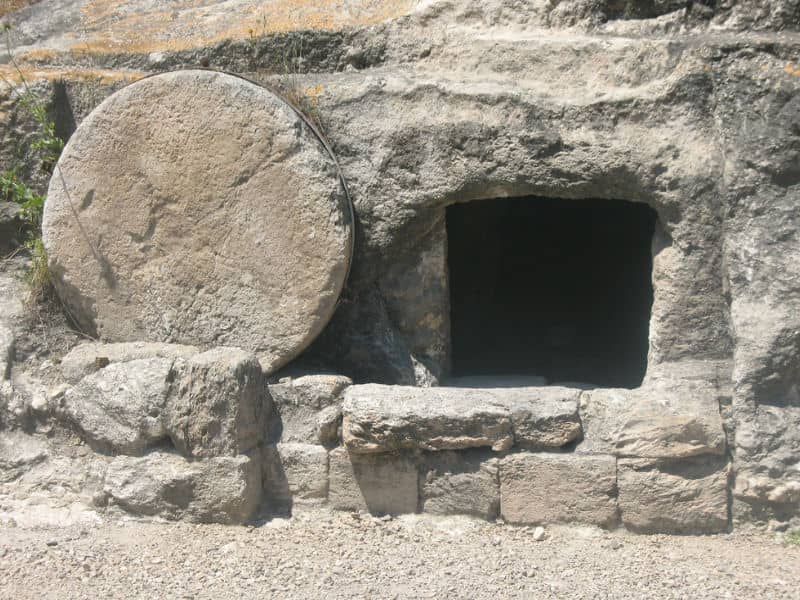
Adam’s descendants, generation after generation, fell to pieces and disintegrated, sinning with shame and dying with fear and horror. People hid from God behind trees, behind stones, and for gold and dust: the more they hid, the more they distanced themselves from the true God and forgot the true God. Nature, which lay somewhere at the feet of man, gradually rose above his head, so that in the end it covered the face of God with everything and it became the place of God for him. And man began to worship nature, that is: to listen to it, to govern it, to pray to it and to offer sacrifices to it. But the adored nature could not save itself or man from death and decay. The terrible path that mankind has walked was the path of sin; and that sinister path led unmistakably to only one sad city – the city of the dead. Kings of men ruled over people and sin and death ruled over people and kings. The further we went, the greater the burden of sin grew, like a snowball rolling down a hill. The human race was in utter despair when the heavenly Hero appeared to save.
That Hero was the Lord Jesus. Eternally sinless and eternally immortal, He visited the rotting graveyard of the human race, scattering the flowers of immortality everywhere. The stench of sin fled from His breath, and from His word the dead came to life. But He, out of philanthropy, took upon Himself the mountain of human sin as He did out of philanthropy clothed in the mortal body of man. But human sin was so heavy and terrible, that under his burden the Son of God himself collapsed into the grave. Blessed is that grave a hundred times, from which flows the river of immortal life for the human race! Through that tomb the Hero descended to Hell, where he destroyed the throne of Satan and destroyed the bed of all evil conspiracies against the human race; next to that tomb, the Hero ascends to the highest heavens, passing a new path – towards the city of the living. By His power He destroyed Hell, by His power He glorified His body and rose from the grave – by His own power, which is inseparable from the power of the Father and the Holy Spirit. Calm as a lamb, the innocent Lord went to suffering and death, and strong as God endured suffering and overcame death. His resurrection is a true event, and at the same time a prophecy and a picture of our resurrection – because the trumpet will sound and the dead will rise incorruptible (I Cor. 15:52).
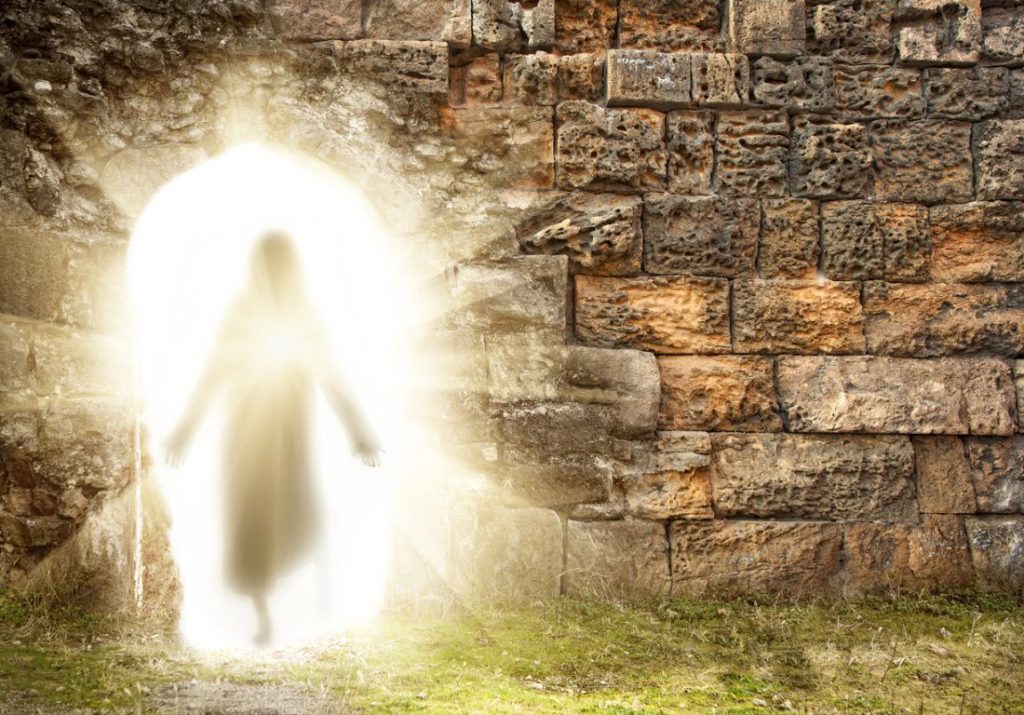
Someone will ask: how do you say that the risen Lord overcame death, but people are still dying? Whoever enters this life through the mother’s womb, they come out of this life through death and the grave. That’s the rule. Only that death for us, who die in Christ, is no longer a dark abyss, but a birth into a new life and a return to our homeland. The tomb is no longer eternal darkness for us, but only one gate, where the bright angels of God are waiting for us. For all those who are filled with love for the beautiful and humane Lord, the tomb has become only the last obstacle to enter His presence – and that is a hurdle as weak as a cobweb. That is why the glorious apostle Paul exclaims: to me life is Christ and death is gain (Philippians 1:21). How is it that God did not overcome death, when death is no longer seen by Him? The tomb is no longer a deep abyss, for He has filled it with Himself; nor is the tomb darker, for He has illuminated it; nor is the grave more of a scarecrow and a horror, for it marks not the end of life but the beginning; nor is the grave our eternal homeland but only the gates of that homeland. The difference between death before the resurrection of Christ and after this is like the difference between a terrible fire and the flame of a candle. Thus the victory of Christ would be fundamental, and so His victory would devour death (I Cor. 15:54).
Someone will ask further: how is it said that the risen Lord overcame sin, but people still sin? Indeed, the Lord overcame sin. He overcame it by His sinless conception and birth; so he overcame it with His pure and sinless life on earth; so he overcame it by His righteous suffering on the Cross; and in the end he crowned all those victories with His glorious resurrection. He has become a cure, a reliable and infallible remedy against sin. He who is infected with sin can only be healed by Christ. He who does not want to sin can only fulfill his desire with the help of Christ. When people found a cure for smallpox, they said: we have defeated this disease! They also said the same thing when they found a cure for gout, toothache, bone pain and some other diseases. We have overcome these diseases! We beat those diseases! Finding a cure for a disease, therefore, means overcoming that disease. Christ is incomparably the greatest Physician in human history, because he brought people a cure against disease over all diseases, that is, against sin, from which all other diseases and all other human torments are born, both mental and physical. That medicine is Himself, the resurrected and Living Lord. He is the only and only reliable cure for sin. If people still sin today and perish from sin, it does not mean that Christ did not overcome sin, but it only means that the people in question do not take the only cure for their deadly disease; it means either that they do not yet know enough about Christ as a medicine, or, if they know Him, that they do not use Him for any reason. But history testifies with thousands of thousands of voices that those who put that medicine on their soul and took it in their body, were healed. Knowing the weakness of our nature, the Lord Christ commanded the faithful to take Him as food and drink under the visible form of bread and wine. This was done by the Lover of Man out of immeasurable love for people, only to facilitate their access to the life-giving cure for sin and the rot of sin. He who eats my flesh and drinks my blood abides in me, and I in him – and he will live for me (John 6: 56-57). Those who sin feed on sin, and life in them is gradually lost from sin. Those who feed on the living Lord, on the other hand, feed on life, and life in them multiplies more and more, and death diminishes. And the more life multiplies, the more disgusting sin becomes. The bland and sad sweetness of sin is replaced by the life-giving and joyful sweetness of Christ the Conqueror.
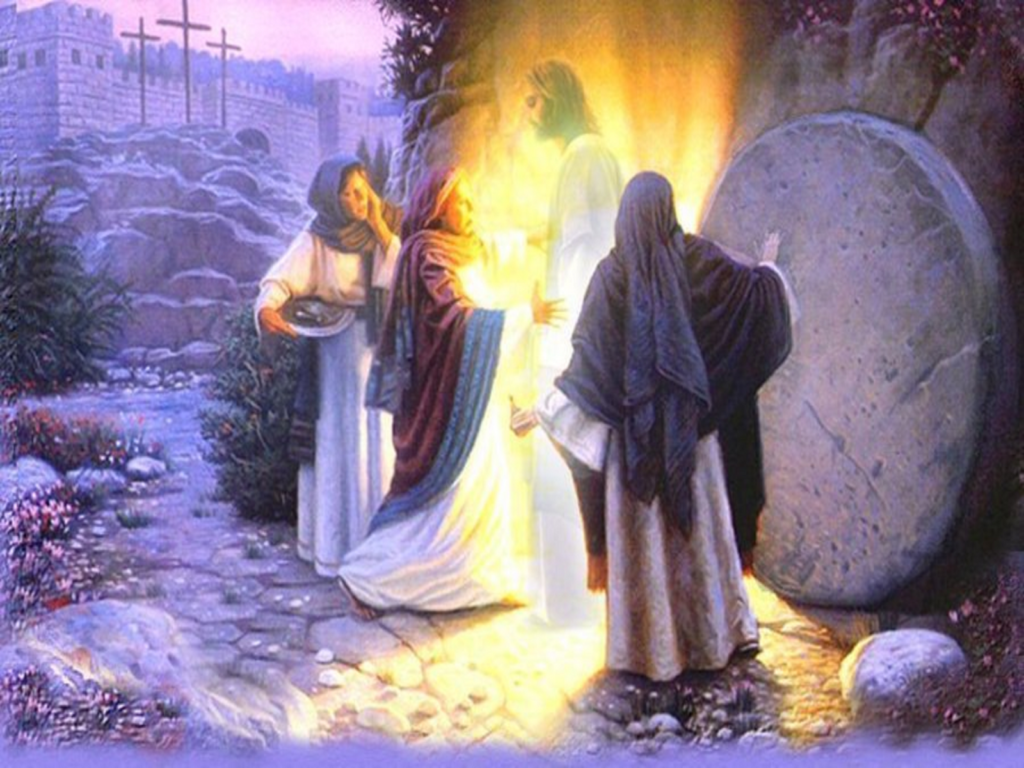
Blessed are those who have tried and tasted this secret in their lives. They can be called sons of light and children of grace. When they move out of this life, they will leave like leaving from a hospital, but no longer like the sick.
We ask ourselves now: whom did the risen Lord deliver by His victory over sin and death? Are they just people of one nationality? Or one race? Or one class? Or one social position? Not at all. Such liberation is a characteristic of the malicious and evil victories of earthly victors. The Lord is not called a Jew-lover, nor a Greek-lover, nor an orphan-lover, nor an aristocratic-lover, but He is called a Man-lover. Therefore, He intended His victory for man, regardless of all the differences that people make with each other. He won the victory for the good and benefit of all created people, and offered it to all created people. To those who receive and adopt that victory, He promised eternal life and succession in the kingdom of heaven. He does not impose His victory on anyone, even if it is so precious, but leaves people free to adopt it or not. Just as man in Paradise freely chose to receive doom, death and sin from the hands of Satan, so he is now free to choose to receive life and salvation from the hands of God the Conqueror. Christ’s victory is a balm, a life-giving balm, for all people, because they have all become lepers of sin and death.
This balm makes the sick healthier and the healthy healthier. This balm revives the dead and multiplies the life of the living. This balm wise, ennobles, deifies man, increases his strength a hundredfold and a thousandfold, and raises his dignity far above all created nature, even to the sublimity and beauty of God’s angels and archangels.
Oh, beautiful and life-giving balms! What a hand would not accept you! What heart would not cling to your wounds! What a throat would not sing to you! What a pen would not describe your miracle! What calculation would not count your healings of the sick and the resurrection of the dead so far! What tears to thank you!
Go, therefore, all of you, brothers, who are afraid of death. Approach the risen Christ and the resurrector, and He will deliver you from death and the fear of death. Walk, all of you, who live under the shame of your public and secret sins, walk closer to the Living Source, which washes and cleanses, and which can make the blackest judgment whiter than snow. Walk all of you who seek health, strength, beauty and joy. Behold, the risen Christ is the rich source of all this. He is waiting for you all painfully and longingly, wanting no one to be absent.
Worship Him with body and soul. Unite with Him with all your mind and all your thoughts. Embrace Him with all your heart. You do not worship the captive but the Liberator; you are not united with the loser but with the Savior; you do not embrace a stranger but your closest relative and most tender friend.
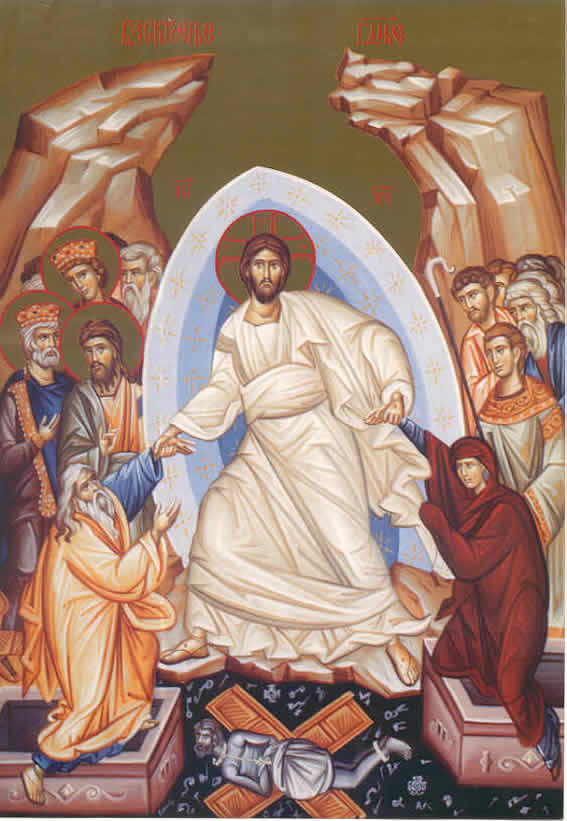
The Risen Lord is a miracle of miracles, but He is just like a miracle of miracles your true nature, the true nature of man, the original, heavenly nature of Adam. The true nature of man is not to enslave the senseless nature around him, but to rule it powerfully, omnipotently. Nor is the true nature of man in nothingness, in sickness, in mortality and in sinfulness, but in glory and health, in immortality and sinlessness.
The Risen Lord removed the veil from the true God and from the true man, and showed us with Himself the greatness and beauty of both. No one can know the true God except through the risen Lord Jesus, nor can anyone know the true man except through Him alone.
Christ is risen, brothers!
By His Resurrection, Christ overcame sin and death, crushed the dark realm of Satan, freed the captive human race, and broke the seal of the greatest secrets of God and man. To him be glory and thanks with the Father and the Holy Spirit – the Trinity, one and inseparable, now and forever, through all time and all eternity. Amen.
Saint Nicholai Velimirovich
Sermon on Easter

